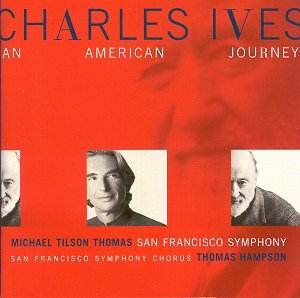 Composer: Leonard Bernstein
Composer: Leonard Bernstein
Works: Jeremiah (Symphony No. 1), The Age of Anxiety (Symphony No. 2), Divertimento
Performers: Michelle DeYoung (mezzo-soprano), James Tocco (piano), BBC Symphony Orchestra, Leonard Slatkin (conductor)
Recording: Colosseum, Watford, October 2000
Label: Chandos
Bernstein’s place in the American symphonic landscape is complex, marked by a vibrant orchestral palette and a propensity for dramatic narrative. His symphonies, while undeniably infused with energy and lyrical depth, often struggle under the weight of their architectural ambitions. This latest release from Chandos, featuring Leonard Slatkin and the BBC Symphony Orchestra, presents a compelling exploration of two of Bernstein’s major orchestral works, alongside the spirited Divertimento, enriching our understanding of his artistic vision.
Slatkin’s interpretation of Jeremiah is particularly noteworthy. This symphony, rooted in the Biblical Lamentations, reflects Bernstein’s emotional depth and political consciousness, composed during a tumultuous time in American history. The visceral anguish of the first movement is palpable, with Slatkin deftly navigating the orchestral textures to evoke the desolation inherent in the text. Michelle DeYoung’s mezzo-soprano voice, while darker than that of Bernstein’s original choice, Nan Merriman, imbues the work with a gravitas that resonates deeply. In the final lento movement, her expressive phrasing captures the profound sorrow of the Lamentations, even if one might nostalgically recall the simplicity of Merriman’s earlier interpretation.
Turning to The Age of Anxiety, Slatkin maintains a meticulous balance between the orchestral and the solo piano lines, particularly during the second part of the symphony, “The Dirge.” James Tocco shines as the piano soloist, exhibiting remarkable clarity and lyricism. His performance is characterized by a nuanced touch, particularly in the contrasting sections where the piano must stand out against the orchestral backdrop. The interplay in the climactic moments is expertly handled, with Slatkin layering the orchestral textures to create a rich tapestry of sound that enhances the emotional impact. Bernstein’s symphonic dialogue with Auden’s poem provides a compelling narrative thread, and while Slatkin prefers to view the symphony as absolute music, the thematic undercurrents are unmistakably present in the performance.
The recording quality merits special mention, as Chandos has delivered a sound that is both vibrant and detailed, capturing the dynamic range of the BBC Symphony Orchestra. The clarity of the orchestral textures allows the listener to appreciate the intricate interplay between the strings and woodwinds, while the brass sections cut through with a bright incisiveness. The engineering effectively highlights Slatkin’s deft handling of Bernstein’s often complex rhythms and orchestral colors, particularly evident in the Divertimento. Here, Slatkin’s infectious energy shines through; the “Turkey Trot” is a delightful romp, while the “Blues” section conveys a sultry depth, with the percussion and trumpet leading the way into a revelatory jazz-inflected territory.
Positioned alongside Bernstein’s own recordings, this interpretation stands as a significant alternative. While Bernstein’s recordings have their own historical weight, Slatkin’s approach offers fresh insights and a contemporary polish that invites renewed appreciation for these works. The emotional breadth and technical prowess displayed by both DeYoung and Tocco, coupled with the orchestra’s vibrant execution under Slatkin’s baton, contribute to a recording that is both engaging and thought-provoking.
This Chandos release of Bernstein’s Jeremiah and The Age of Anxiety, complemented by the lively Divertimento, offers a rich, multi-faceted listening experience that both honors the composer’s intent and showcases the talents of its performers. The balance of emotional depth and technical precision within these interpretations affirms Bernstein’s enduring relevance in the symphonic repertoire, inviting listeners to reflect on the complexities of his musical language.



